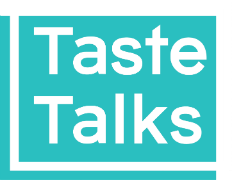At an event that gave out doughnuts and meatballs, one might not expect that the buzzword to be health—but it remained an underlying theme throughout Brainfood , Spoon University’s thought leadership conference now in its third year. Held in New York, it brought together Spoon University staff and alumni, foodie millennials, and young and established professionals in the world of food, health, marketing, and publishing—and culminated in a free 80-page guide to eating right .
In a world where we’re constantly bombarded with mixed messages about what to eat and what to avoid, nutrition and health so often gets skewed—but several of this year’s speakers attempted to set us all straight, including Mackenzie Kruvant , a senior editor at Buzzfeed, who spoke on the panel “How Social Media Changed The Way We Eat.” Kruvant brought attention to how social media affects how we look at our own diet and our own bodies. For instance, when she curates content for Buzzfeed Food, she’s always careful of what she puts in her captions.
“We don’t captions food as ‘cheat day meals’ or something like that. We don’t want to shame people for their diets,” she said.
She went on to talk about how we have a misconception of a lot of other people’s diets. When the panel began to discuss the presence of a vegan diet on social media, Mike Chau, the creator of @foodbabyny (who’s adorable son really stole the spotlight in this panel) claimed that he really does not like to show vegan food too often.
“People don’t want to see a salad on Instagram, or anything healthy in general, really,” Chau said. Kruvant was quick to jump in and note that being vegan does not necessarily mean healthy.
Those thoughts were later echoed at the panel “What Health(ier) Really Means.” Moderated by NYU nutrition and food studies professor Lourdes Castro, the panel dug into why healthy is actually a problematic word. Registered dietitian at Foodtrainers Carolyn Brown was the most outspoken of the group, sharing her philosophy as to why our view of healthy today is kind of messed up. All these calorie-counting apps, she claimed, could drive us all insane. She also believes that the idea that moderation is key is a lie; instead, she advocates for what she called optimization and self tailoring. Using that thought process, she says, try paleo or vegan if you want, but you can and should tailor your diet to what suits you. If you feel crummy after eating dairy, for example,start trying to limit dairy in your diet.
Brown’s major rule is to be in control of your own diet and to eat what fuels you. If you want pizza, eat it, but don’t just eat it because it’s there and you think it’s all you can get your hands on at the moment. If you’re looking for a good mantra to keep you eating well for your body, follow Brown’s words of wisdom: “Choose the pizza. Don’t let the pizza happen to you.”
Stephanie LaSpina, who is the lead teacher at Y7 Studios, also has a bone to pick with the word “healthy.”
“Health is multifaceted, just like people,” LaSpina said. “What’s healthy for one person may be totally unhealthy for someone else.”
Although she agreed with Brown’s view of optimization, she warned to never go to extremes, because it’s only every going to hurt your body. She watched one half of her family constantly overeat and the other half over-exercise. As a yoga teacher, LaSpina’s view of health was more focused on the exercise portion—she emphasized that we need to stop treating exercise as a punishment. We often exercise because we’re mad at ourselves. We overate so we have to work out. We feel fat so we have to work out. Instead, she recommends looking at exercise as a reward.
“Shift your mentality from beating yourself up,” said LaSpina. “Find something that you enjoy, something that resonates with you. If you hate running, don’t run!”
Leigh Weingus, senior writer at Mindbodygreen , had the most to say about body image and the ideals of beauty today. As a woman who has been skinny all her life, Weingus discussed how she often wished that her body worked a little differently. When a member of the audience asked a question about how to avoid getting too muscular as a college athlete, Weingus was quick to say that she always wanted to be more muscular herself, particularly in her arms. She went on to talk about the idea of the “bikini-body.”
“We all have bikini bodies!” she said. “I have one, you have one, everyone in this room has one. Just put on a bikini and you have one.”
Not everyone echoed Weingus’s sentiment, though. Castro jumped in to argue that the body acceptance movement might be doing more harm than we realize. She expressed fears that, by accepting larger people, we are telling our children that it is okay to overeat. She believes that, because we are now saying that people should be happy in overweight bodies, that now more people are going to eat as much as they want, no fear of the consequences of obesity.
Weingus, however, focused more on the ideal of beauty in the form of strength. She did not discuss overweight people, but she did discuss people who may look bigger because of their muscles.
“The ideal of beauty has switched from skinny, Kate Moss body type, to strong,” she said, adding that it was a step in the right direction.
More questions were raised than answered at Brainfood, but one thing was for sure: health is a subjective thing. You can’t know what works for you health-wise until you learn what doesn’t. Some people love having a calorie-counting app, while others may find it restrictive. Some people might find inspiration in looking at workouts on Instagram, others may find it triggering and upsetting. Health, like anything else, is unique to an individual and it can only be learned, not taught.










